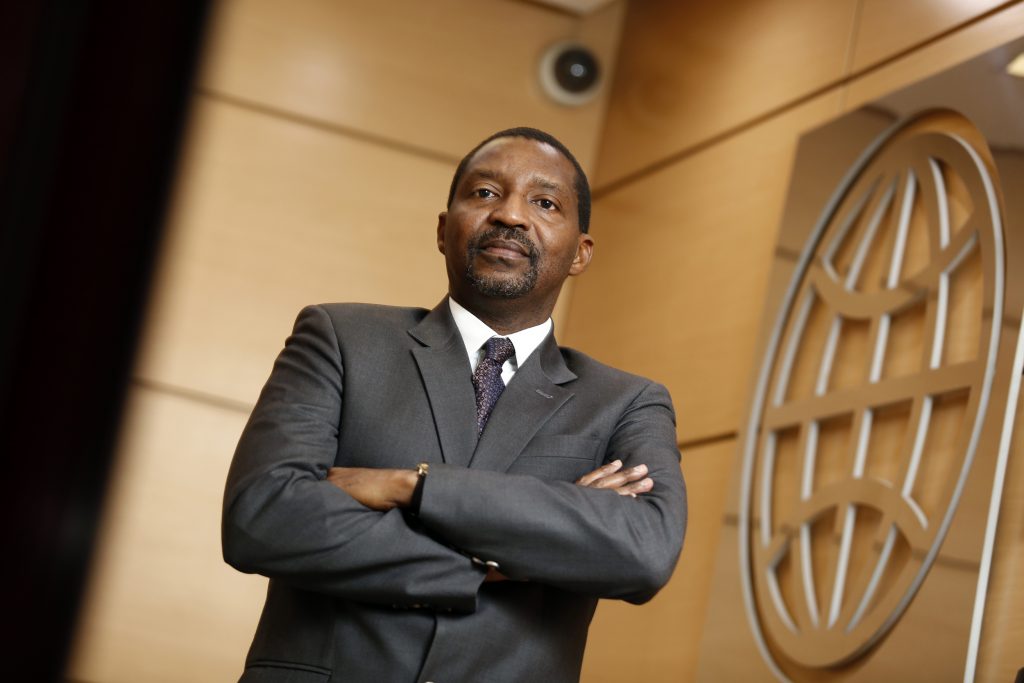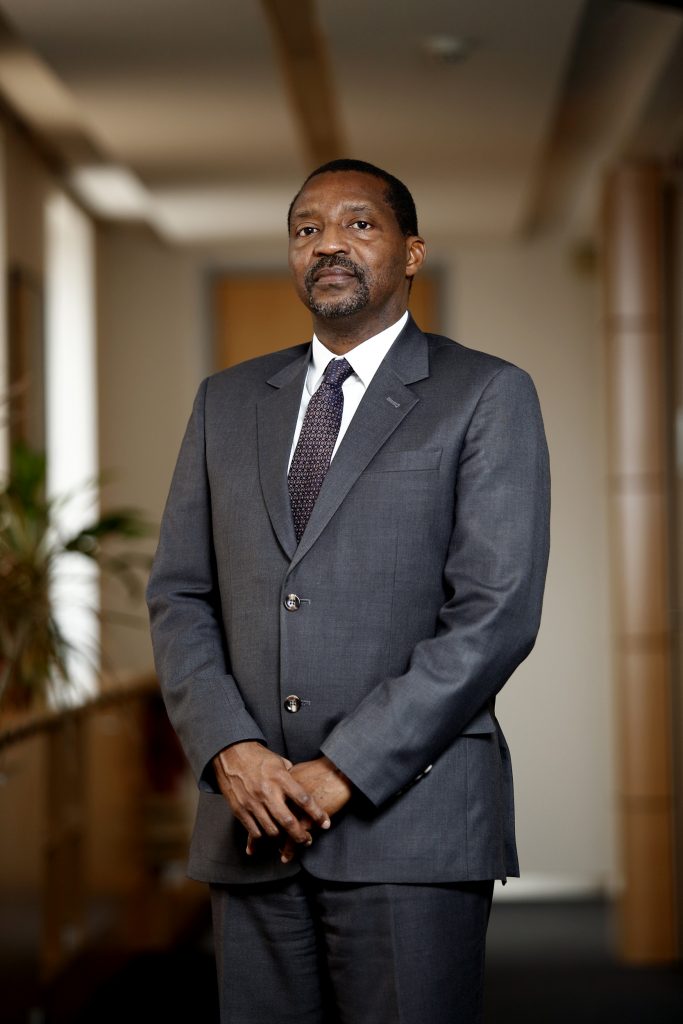There are still numerous reforms in the business environment (e.g., related to infrastructure, financial sector, labor markets, tax system, etc.) that could help lower the cost of doing business in Serbia and further encourage private investment and employment
“Serbia’s robust response to the pandemic has shown good results and ensured that the country was among the most resilient economies in Europe” said Mr. Stephen Ndegwa, World Bank Country Manager in an interview for February issue of Diplomacy&Commerce magazine. We also spoke about predictions for this year, in terms of GDP, fiscal stability, implementation of the reforms and cooperation in different areas.

How would you assess Serbia’s results in 2020 in terms of the GDP?
The Serbian government together with the National Bank of Serbia responded fast and robustly to safeguard the economy and citizens from the unprecedent effects of the pandemic and the necessary control measures. The total value of the fiscal support package was close to 13 percent of GDP which significantly helped to avoid a deeper recession and a greater deterioration in living standards. The resulting rise in public debt from 52.9 percent of GDP (end 2019) to an estimated 59.7 percent (end 2020) was not abnormal but bears watching.
It is useful to emphasize that we yet again learned that it is important during the good times to build buffers, which could help when a crisis hits. This is exactly what happened in Serbia – over the previous several years Serbia was going through a painful but necessary fiscal adjustment, but in turn it built significant fiscal deposits that were used at the start of the crisis to finance the fiscal stimulus program. Growth last year was supported also by a good agriculture season, and more importantly by a resilient and flexible IT sector which grew as well.
The World Bank (WB) has estimated that Serbia will record a GDP growth of 3.1% this year. What should be the priorities of the Serbian government in 2021?
To speed up growth it is crucial that the government continues an ambitious reform path as outlined last year in the World Bank report “Serbia’s New Growth Agenda”. There are still numerous reforms in the business environment (e.g., related to infrastructure, financial sector, labor markets, tax system, etc.) that could help lower the cost of doing business in Serbia and further encourage private investment and employment.
I would like to emphasize that it is important to ensure a coordinated reforms effort so that all parts of the public sector – ministries, judiciary, utility companies, local governments, etc. move in the same direction and with speed to ensure the proper implementation of new rules and reformed legislation. Often slow or incomplete implementation of adopted reforms or of otherwise solid new legislation meant the economy did not get all intended benefits. Where to start? Several local business associations prepare annual reports on implementation bottlenecks, so there are “low-hanging fruit” (e.g., streamlining international payments and collections, improving predictability regarding taxes and parafiscals, etc.) that the government could work on to remove bottlenecks and accelerate investment and business and job opportunities.
In which areas is it necessary to implement reforms faster for Serbia to recover as soon as possible and continue on the path of faster economic growth?
Serbia dramatically improved its Doing Business rating over the last five years by simplifying and streamlining procedures in several important areas but lags its peers on voice and accountability. Governance and institutional weaknesses are the next frontier to conquer to energize Serbia’s growth. On global rankings such as World Governance Indicators, Corruption Perception Index, Freedom House indicators, etc. Serbia’s ratings have been in decline. Reversing these trends and strengthening governance and accountability will be key if Serbia is to achieve and sustain higher growth, incomes, and well-being for all its citizens. Governments that are efficient and effective, that preserve fiscal integrity, and that promote fair, transparent and predictable rules win.
“Serbia dramatically improved its Doing Business rating by simplifying and streamlining procedures in several important areas, but lags its peers on voice and accountability”
I would also emphasize two other strategic areas of reforms. First, further and faster alignment with the EU Acquis and greater energy in advancing accession is good for Serbia in many ways. Second, the government should pursue with vigour its stated focus on future growth that is also more environment-friendly. The World Bank along with Serbia’s other partners, including the EU, France and Germany, strongly supports Serbia in this “green growth” endeavour. We are encouraged to see that several strategic documents are currently under preparation – including the Climate Change Law – which should create foundations for the green recovery.
Early last year, the World Bank announced that it would grant loans to Serbia to improve its business environment. Given the current trends, how far have we come with this plan and what is the plan for 2021?
Relatively modest growth over the previous decade is linked to low productivity and low competitiveness of Serbian enterprises, and these are partially a result of the challenges in the business environment, including high regulatory and administrative costs. To support Serbia’s reform goals, we plan to launch a project on improving business environment this spring, working with the EU and in alignment with our sister institution, the International Finance Corporation (IFC). The work will focus on regulatory simplification, improving capacity for implementation, better access for government-to-business services, and digitalization. Investment is key to the recovery, and we continue to support public investment that promotes growth.
“To support Serbia’s reform goals, we plan to launch a project on improving business environment this spring, working with the EU and in alignment with the IFC”
On infrastructure, in collaboration with France, we are finalizing a multi-year investment and policy program to modernize Serbia’s railways. Finally, this year we expect to prepare with the government two additional projects to promote the private sector — a competitiveness and jobs project focusing on strengthening capabilities of Small and Medium-sized Enterprises (SMEs) and a more strategic approach to investment promotion, and a project to modernize capital markets and promote long term finance. And, finally, a project focusing on local infrastructure is under design.
Cooperation in the mining segment is also foreseen. What does Serbia need to do to improve energy and make it cleaner?
We are glad to see that mining and energy sector transformation and sustainability are strong government priorities. Serbia’s mining sector’s contribution to GDP and employment remains low, and declining. Over the past five years, the mining sector has contributed 2 percent of GDP. The sector can be a new engine for growth if sector policy, regulations, and administration are modernized (e.g., digitalizing) and especially if the Jadar/lithium-borate sector is well managed to enable Serbia to be the supplier of choice for minerals essential for the low-carbon global economy. If they materialize soon, major projects (e.g., processing lithium-borate or production of batteries) in the sector could boost export earnings, government revenues, and employment and increase the sector’s contribution to GDP from 2 percent to 4 percent by 2024.
At the same time, this is an opportune time for government to renew its energy law, including on renewables, and to resolve in a strategic, well-calibrated and socially and environmentally sustainable way (‘just transition’) the dependence on coal and loss-making operations in the mining sector. We welcome the government’s renewed emphasis and intended action on good environmental management of mining projects. We look forward to partnering with the government to support transformation in mining and ensure benefits for all Serbians.

Serbian president has announced a new set of economic aid measures in February. Given that many countries are forced to borrow money to help their economies survive, how can Serbia move in that direction without jeopardizing its fiscal stability?
The impact of the pandemic on the economy and citizens is unfortunately lasting much longer and remaining more severe than originally thought. The government is closely monitoring developments and again decided to respond quickly, which is a good thing. We still don’t know details about the future fiscal support program, but we would highlight three global good practices: that it be well-targeted to those most in need, that it be financed by reallocating resources from non-priority activities, and that implementation be transparent and efficient. In this way, the negative impact on the deficit and on public debt could be minimized. It is important to keep an eye on the public debt evolution as well as on costs of financing so that risks to the budget are minimized and the gains of fiscal reforms of the last seven years are safeguarded.
Is the Serbian health care system sufficiently consolidated enough, and are we ready for a new wave of the epidemic, if it happens, this year?
Serbia has done well in its efforts to control the pandemic through several prevention and epidemiological measures and strengthening the capacity of the health system to provide appropriate care to those infected. Serbia’s vaccination campaign is running according to established priorities and smoothly and at an impressive rate. All this speaks to the strength of the system. The World Bank recognizes all these efforts and is further supporting the health system through an on-going health system strengthening project and a recent 92 million EUR emergency loan supporting the COVID-19 response.
The worst consequences of the pandemic
What do you think are the worst consequences of the pandemic for the global population?
According to Johns Hopkins University, as of end of January more than 103 million people have been infected and 2.2 million people died from COVID-19 worldwide. These numbers rise daily. The catastrophe goes beyond COVID illness. The pandemic strained health systems in countries around the world and those sick from other diseases, unrelated to COVID-19, have had to defer care. We cannot forget the continuing economic and social costs. Although the global economic output is expected to expand 4 percent in 2021, this remains 5 percent below the pre-pandemic trend. Uncertainty also remains on the impact of the global disruption, including on investment flows, global value chains, trade and tourism. The human capital impact remains uncertain given disruptions in education.
By Ruža Veljović